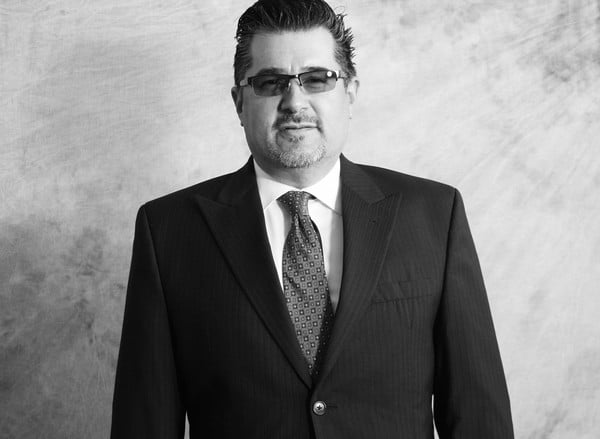
Balance. So many people try to find that magical, often elusive point where a challenging, rewarding career, a fulfilling family, and personal life meet and complement each other. It can be complicated when that career is in the medical field. But it’s not impossible.
Meet Dr. David Wallace, D.O., an obstetric anesthesiologist with the Midwest Anesthesia Associates in Fort Wayne, Indiana. By making choices supporting his balance goal early in his career, he found that point. Since then, he has experienced success at work, where patients are drawn to his caring nature in addition to his medical expertise. And he made sure he had plenty of time devoted to raising five children with his wife.
It may seem impossible for doctors to achieve that balance when their careers demand so much of their time and mental and emotional strength. But Dr. Wallace’s fascinating story about the world of obstetric anesthesiology will guide doctors towards that much-coveted balance.
Career Decisions
Dr. Wallace’s interest in a medical career began in early childhood.
“I’m told that ever since I was a little kid, I said I wanted to be a doctor. My mother and my second-grade teacher talked about it. I remember M*A*S*H (the TV show) was very popular. I had read that it was a fairly decent description of what medicine was really like. I thought that looked like fun. So I thought I would like to do that,” Dr. Wallace said.
He followed the academic path from a pre-med major to medical school, eventually choosing anesthesia as his specialization. The science behind it appealed to him.
“Anesthesia is applied physiology and applied pharmacology. We blend the two together to bring a patient to where they’re able to have surgery or a procedure and then come back and have no long-term effects,” Dr. Wallace said.
There was one other reason for choosing this career path–lifestyle. He wanted to be an active parent and spend plenty of time with his children as they grew up. He decided this choice would allow for the balance he sought.
Obstetric Anesthesia
The Specialty
Obstetric anesthesia plays an essential role during pregnancy and during and after childbirth. This specialty touches several medical disciplines, such as obstetrics, neonatology and surgery. The anesthesiologists work closely with obstetricians, midwives, nurses and other team members to care for both mother and baby and to prevent and manage complications along the way.
“I do obstetric anesthesia, so I do epidurals and C-sections on a daily basis. I have patients who are extremely grateful that I’m here and have been instrumental in their care. I see about 50 babies delivered per month,” Dr. Wallace said.
Training
The obstetric anesthesiology specialty usually includes a fellowship lasting one or two years after residency. Fellows learn skills required to manage pregnancies at varying levels of risk, and they participate in research.
Dr. Wallace was fortunate to study under a highly accomplished anesthesiologist, Dr. Jerry Bassell.
“I trained under an incredibly gifted anesthesiologist who was one of the authors in obstetric anesthesia. He was the chief editor of the magazine for the Society of Obstetrics, Anesthesia and Perinatology when I was a resident. I had the opportunity to focus my practice in obstetrics and took that opportunity. I’ve enjoyed it ever since,” Dr. Wallace said.
The Patient Relationship
Dr. Wallace’s favorite part of his work is interacting with the patients. Because of the nature of his work– putting people to sleep–it’s not easy to build a doctor-patient relationship. A lot of patients don’t remember the interactions they have with their anesthesiologist. But Dr. Wallace does make an effort to connect with them. As a result, many of his patients do remember him, and they are truly grateful.
Because he meets patients at a stressful point in their lives, he uses humor to help reduce their worries.
“They band the mom, dad, and baby with the same code number, so the babies don’t get switched. I will tell my obstetrical patients that it means she has to take both of her children home, the oldest one and the littlest one. The moms get a good giggle out of that,” Dr. Wallace said.
Dr. Wallace offers important advice to the mothers about managing expectations. Too many new moms think everything has to be perfect, or they have failed. Dr. Wallace wants to dispel that harmful notion.
“Life is what happens in the midst of all of our plans. Some women feel like failures if they need an epidural when they want to go natural, have trouble nursing, or don’t lose the baby weight fast enough. But nothing is going to be perfect. The reality is that you need to take what life gives you and enjoy the good times,” Dr. Wallace said.
The Family Side of a Balanced Equation
Throughout his training and practice, Dr. Wallace and his family lived in several locations, including Michigan, Utah, Mississippi, and Indiana, where he and his wife eventually settled.
“I tried to find positions to work where there was a good work-home balance. And so, I was able to coach my kids in soccer and help them in their schooling and things like that. I could do what I wanted to do and occasionally be an at-home dad,” Dr. Wallace explained.
The couple’s five children range in age from 23 to 35. One of them, a daughter, follows in his medical footsteps and is training to be an ICU nurse. All five were fortunate to have their father play an active role in their childhood.
A Parting Reminder
Obstetric anesthesia has evolved since its introduction in 1847 with the use of ether. Recent advancements in techniques and pain management have dramatically improved the pregnancy and childbirth experience. It has made possible more family involvement, where the father can actively participate as a partner.
But Dr. Wallace points out that progress has not necessarily followed a straight line. And new techniques and equipment are constantly being introduced that will continue to add to patients’ safety and comfort.
“In a lot of ways, anesthesia has come full circle. When I was a resident, we limited the use of narcotics. In the 90s, the use increased until problems arose. Anesthesia is safer now with newer medications,” Dr. Wallace said.
Dr. Wallace figured out how to build a rewarding medical career without sacrificing family time. By creating the work-life balance he desired for himself and his family, he has taken his own advice.
“You need to take what life gives you and enjoy the good times,” he said.





0 Comments